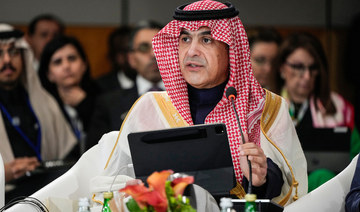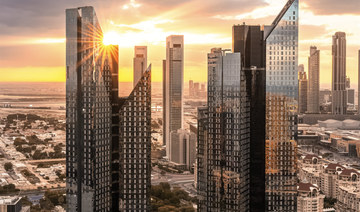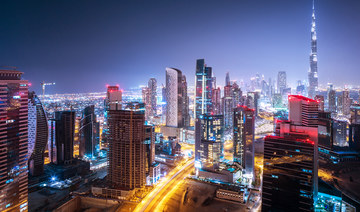TOKYO/LONDON: Japan's SoftBank will buy Britain's most valuable technology company ARM for $32 billion in cash, an audacious attempt to lead the next wave of digital innovation with a chip designer that powers the global mobile phone industry.
Led by the charismatic Japanese investor, Masayoshi Son, SoftBank swooped on the Apple supplier ARM in the three weeks since Britain voted to leave the European Union, a result which stunned financial markets and has sent sterling down 11 percent against both the dollar and yen.
While the drop has made British assets much cheaper for foreign investors, the chief of the telecoms and internet group played down any suggestion that this was an opportunistic deal.
Son said he had been following ARM for the last 10 years and decided now was the right time to invest in a firm that provides the technology in nearly all smartphones including Apple's iPhone and Samsung's Galaxy.
ARM is also poised to play a central role in the tech industry's shift to the 'internet of things' (IoT) — a network of devices, vehicles and building sensors that collect and exchange data — a stated focus for SoftBank founder and CEO Son.
"ARM will be the center of the Internet of Things, in which everything will be connected," he told reporters. "IoT is going to be the biggest paradigm shift in human history (and) we have always invested at the beginning of every paradigm shift."
The ARM deal is one of Japan's biggest overseas ventures and the latest in a parade of Japanese companies seeking growth abroad as the domestic economy stagnates.
From a British point of view, the capital investment is so big that it covers approaching three months of the country's huge current account deficit, according to Kit Juckes, head of currency strategy at Societe Generale.
It is SoftBank's largest takeover to date and marks a departure for a group whose tech and telecom portfolio ranges from U.S. carrier Sprint to a stake in Chinese e-commerce giant Alibaba and humanoid robot "Pepper" — but does not yet include a major presence in the semiconductor industry.
The deal will also mark a major change for the 26-year-old British firm based in Cambridge, eastern England, and which touts its independence as a reason why it can work with the rival players in the mobile industry.
British politicians have objected in recent years to some international takeovers including Pfizer's failed bid to buy AstraZeneca and the successful move by Kraft to buy British chocolatier Cadbury.
But Son spoke to British Prime Minister Theresa May over the weekend and within minutes of SoftBank announcing the deal on Monday the government released a statement saying it showed Britain remained open for business.
Uncertainty surrounding the vote to leave the EU in last month's referendum has raised fears that foreign investment, which is vital for covering the current account deficit, might fall.
ARM Chief Executive Simon Segars told Reuters the board had been impressed with SoftBank's promise to increase jobs at ARM, its willingness to engage the British government, and the 43 percent premium the group was willing to pay.
ARM shares surged 42 percent to 16.90 pounds by 1408 GMT.
"SoftBank's position as an entity outside the semiconductor industry allows ARM to retain its independence and protect existing customer relationships, while commitment to UK investment ensures management buy-in," Jefferies analysts said in a note. "It's difficult to see other suitors at this stage."
The acquisition is the first for Son, 58, since he last month rescinded plans to retire — effectively pushing out his heir apparent, former Google executive Nikesh Arora.
Son, whose lucrative early investments include Alibaba, said then that he wanted to "cement SoftBank 2.0", turn around loss-making Sprint and "work on a few more crazy ideas".
Though he has a low profile outside Asia, Son has long been an unconventional visionary in the often closed and clubby world of corporate Japan, turning profits from Japanese telecoms into bets on up-and-coming start-ups.
Not all have been a success: SoftBank's $22 billion acquisition of a controlling stake in Sprint in 2013 has left the group with hefty debts. But Son said on Monday his decision to move for ARM reflected his confidence that Sprint was close to turning around.
SoftBank had interest-bearing debt of 11.9 trillion yen ($112.6 billion) at end-March, including 4 trillion yen at Sprint, and its net debt currently stands at 3.8 times core earnings.
SoftBank has raised nearly 2 trillion yen in cash over the last few months through asset disposals, according to Son - including the sale of shares in China's Alibaba, unusual for a group that has rarely exited investments.
But analysts had expected it to use the cash to reduce debt or give shareholders a windfall by buying back its own shares.
Instead, Son appears to have leapt on the opportunity to buy ARM at a time when Britain was convulsed by the political and financial fall-out from the vote to leave the EU, which prompted sterling's fall to a 31-year low against the dollar.
Though ARM has warned on the staffing impact of Brexit, its revenues are largely in dollars, and the weaker pound prompted its shares to climb almost 17 percent since the vote.
Under the offer on Monday SoftBank said it was committed to keeping top managers, ARM's headquarters and to at least double the employee headcount in Britain.
Analysts said on Monday that a counterbid was not impossible but also unlikely, as any rival bidder among ARM's customers or Chinese rivals could face regulatory challenges.
SoftBank shares were not traded on Monday, a market holiday in Tokyo.
Lazard and Goldman Sachs were the lead financial advisers to ARM while the Raine Group, Robey Warshaw and Mizuho Securities acted as financial advisers to SoftBank.
SoftBank to buy ARM in $32bn cash deal
SoftBank to buy ARM in $32bn cash deal

SFD, AfDB sign deal to finance development initiatives in Africa
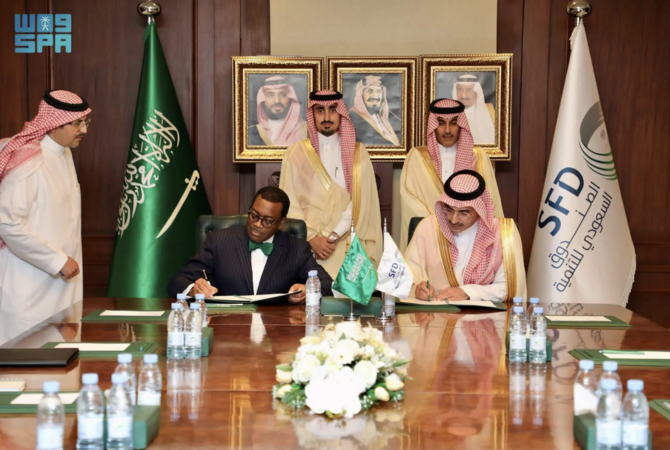
RIYADH: Developing African countries are poised to receive a funding boost for growth initiatives following a deal with the Saudi Fund for Development, aiming to foster sustainable progress.
The memorandum of understanding, signed with the African Development Bank Group, aims to promote mutual objectives and activities for sustainable international development between the two parties, the Saudi Press Agency reported.
This initiative aligns with SFD’s objective to enhance both social and economic growth by creating diverse opportunities.
Moreover, the newly signed agreement aims to facilitate the exchange of knowledge and experiences while advocating for optimal co-financing strategies. It will also support the attainment of sustainable development goals and optimize the impact of these initiatives.
Additionally, the MoU also aims to enhance collaboration in pursuit of shared goals that promote the expansion of crucial opportunities in diverse beneficiary African nations, ultimately contributing to global prosperity for the most impoverished and least developed communities.
Saudi Central Bank and BIS co-host meeting on reserve management in Riyadh

RIYADH: The evolving global landscape presents new challenges and opportunities for central bank reserve managers, the governor of Saudi Arabia’s apex financial institution explained at a high-level meeting.
Speaking at an event in Riyadh which was attended by the Bank for International Settlements, Ayman Al-Sayari set out his view on the complexities of the current macro-financial environment.
The two-day gathering, which began on April 28, brought together reserve managers and experts from central banks in the Middle East and North Africa region, as well as participants from other apex financial institutions, to discuss the latest trends in managing foreign exchange reserves.
The event served as a platform for participants to exchange insights, perspectives and expertise on the most critical aspects of reserve management through a series of panel discussions and keynote speeches.
In March, SAMA’s monthly statistics bulletin revealed that foreign assets of Saudi Arabia’s commercial banks surged by 22 percent in February, reaching a total of SR347.63 billion ($92.7 billion) compared to the same month of the previous year.
This rise reflects a significant expansion in the commercial institutions’ international holdings and investments.
The central bank added that its net foreign assets reached SR1.55 trillion in February.
Central banks’ foreign holdings are primarily for reserve management and monetary policy purposes, while commercial banks’ foreign assets are for business operations, customer services, and investment activities.
The report added that Saudi Arabia’s total reserve holdings amounted to SR1.62 trillion, representing a five percent decline compared to the same month of 2023.
DIFC records $2.6bn in gross written premiums, highest figure in its 20-year history
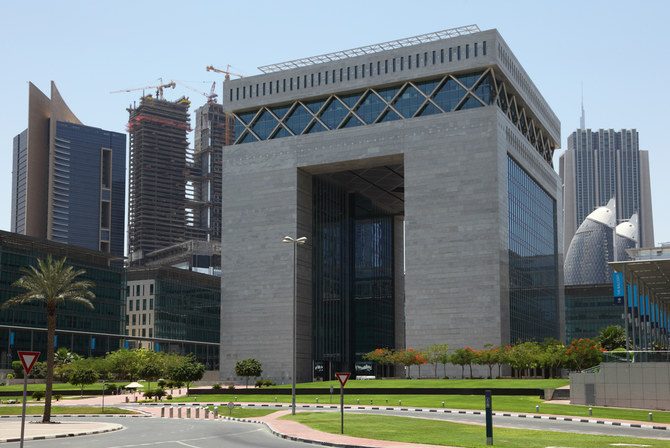
RIYADH: Dubai International Financial Centre recorded its highest gross written premiums in its 20-year history, amounting to $2.6 billion in 2023, marking a 23 percent increase from the previous year.
DIFC, a global financial center in the Middle East, Africa, and South Asia region, connects the fast-growing markets of the region with global economies and offers dining, retail, and living amenities, according to its website.
The center also recorded a 20 percent increase in the registration of insurance and reinsurance firms, including the first move of a Guernsey-based captive.
The Emirates News Agency reported that DIFC “has consolidated its position as the principal hub for the (re)insurance industry,” adding that DIFC’s appeal for managing general agents, representing 43 percent of new registrations, is a major factor shaping its insurance landscape.
This is credited to the center’s well-established regulatory framework, facilitating partnerships with cedants and brokers.
The influx of global insurers, reinsurers, and brokers, as well as captives, MGAs, and other industry stakeholders into DIFC, is driven by several factors. These include buoyant oil prices and increased infrastructure spending, as well as a focus on sustainable projects and low insurance penetration in the region.
Among the notable entities to join DIFC’s insurance sector in the past year are Alif Limited, Arc Insurance and Reinsurance Limited, and Barents Risk Management Limited. Joining them are BharatRe Global Ltd. and many more, it added.
Arif Amiri, CEO of DIFC Authority, emphasized the center’s role as a global industry hub, hosting over 120 registered insurers, reinsurers, captives, MGAs, and related entities.
The significance of DIFC’s stature in the insurance domain is further underscored by its co-hosting of the Dubai World Insurance Congress, featuring discussions on key themes reshaping the industry’s future, including innovation, capital attraction, and talent development.
In 2023, a survey conducted at DWIC revealed an 87 percent confidence in the Middle East, Africa, and Southern Asia market’s strategic opportunities. Property, health, energy, cyber, and liability lines of business were identified as holding the most potential. The survey also highlighted an 85 percent confidence rate in renewals and client retention.
Over two decades, DIFC has fostered the growth of the insurance and reinsurance industry, attracting talent and expertise to access key markets in the Middle East, Asia, and Africa.
The center hosts major insurance brokers, five of which are top ranked by the specialized insurance credit rating agency, AM Best. This has contributed to a significant 61 percent increase in brokered premiums compared to 2022, surpassing the $2 billion mark and solidifying DIFC’s position as a global market for insurance and reinsurance placements.
Dubai Real Estate Brokers Program attracts 25 strategic partnerships
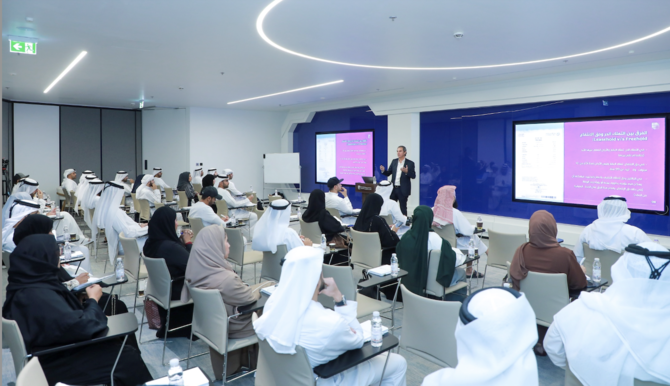
RIYADH: Dubai’s property market is set to grow, with the Real Estate Brokers Program securing 25 partnerships with brokerage companies and developers in the private sector.
According to a press statement, the first phase of the program, launched in mid-March and headed by the Dubai Land Department, also received over 1,000 registrations from Emirati citizens.
Dubai Real Estate Brokers Program aims to increase the proportion of citizen brokers from 5 percent to 15 percent over the next three years to enhance the participation of young citizens in the Emirate’s developmental initiatives across various key sectors.
“This reflects the early positive impact of the program, showcasing citizens’ aspirations and eagerness to engage as real estate brokers and acknowledging the pivotal role of Dubai’s real estate sector locally and globally,” said Marwan bin Ghalita, acting director general of Dubai Land Department.
The initiative also aligns with Dubai Social Agenda 33, which seeks to triple the number of Emiratis working in the private sector.
Ghalita added that the program will help young talents in the nation enhance their productivity, therefore contributing to Dubai’s economic growth.
“Dubai consistently offers outstanding examples of collaboration and synergy between the private and public sectors,” said Ghalita.
He added: “With the program’s enrollment exceeding 1,000 citizens and real estate companies continuing to join the strategic alliance within a short period, we are diligently working toward achieving all the ambitious goals of the Dubai Real Estate Brokers Programme. In particular, Emirati real estate brokers will increase from 5 percent to 15 percent over the next three years.”
The program also encompasses additional initiatives, including Emirati real estate broker licensing, encouraging property developers to allocate a portion of their sales to local agents, and empowering citizens in the property sector.
Under the partnership with the private sector, citizen participants will receive various support packages to enhance the competitive edge of UAE people and enable them to take up roles in the real estate sector.
The press statement added that efforts would also be made to allocate 10 percent to 15 percent of the development company’s sales to be marketed by Emirati real estate brokers, therefore contributing to the empowerment of national citizens by offering them employment opportunities in the property market.
Dubai ruler approves new $35bn airport terminal
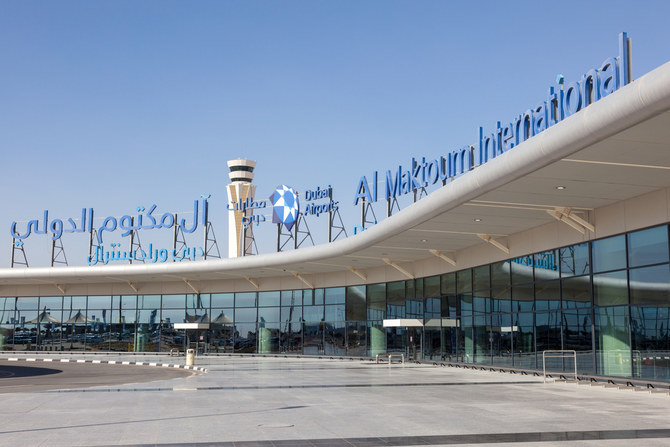
CAIRO: Dubai’s ruler Sheikh Mohammed bin Rashid Al-Maktoum approved a new passenger terminal in Al Maktoum International airport worth 128 billion dirhams ($34.85 billion), he said on Sunday in a post on X.
The Al Maktoum International Airport will be the largest in the world with a capacity of up to 260 million passengers, and five times the size of Dubai International Airport, he added, saying that all operations at Dubai airport would be transferred to Al Maktoum in the coming years.
The Al Maktoum airport will also include 400 terminal gates and five runways, he said.
The airport will be the new home of flagship carrier Emirates and its sister low-cost airline Flydubai along with all airline partners connecting the world to and from Dubai, Dubai state-owned airline Emirates chairman Sheikh Ahmed bin Saeed Al-Maktoum said.
The move “further solidifies Dubai’s position as a leading aviation hub on the world stage,” the CEO of Dubai Airports, Paul Griffiths, was quoted as saying by the Dubai Media Office.



